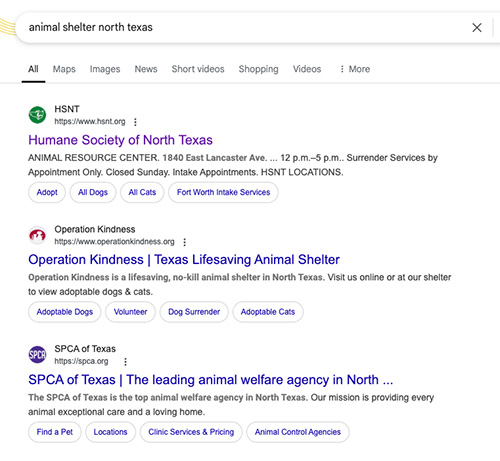|
Finding Sources
While searching for sources, you will be making a lot of decisions. Some of them are easy; others are tough. Yet, regardless of what your decisions are going to be about—the focus, the argument, the support materials—at the core lies your credibility as a writer. In fact, there will be two kinds of credibility to juggle—that of your sources and that of your own. If you want to come across as a knowledgeable writer, the company you assemble (that is, the sources you bring in) will speak volumes about you and your understanding of the subject.
Striking as it might sound, credibility is not an innate quality. Credibility is established. Demonstrate a firm grasp of the matter at hand, and your audience will perceive you as a knowledgeable person, worthy of their attention. Show that you know who argues against your case, and your audience will take your argument more seriously. “But what if I am not particularly knowledgeable about the subject matter?” you might ask. “What if I am making my first scholastic steps?” Well, there is plenty of good news for you: good sources lend you their credibility.
- How do you find good sources, then? Earlier in this chapter, we listed seven questions that can help you to determine the credibility of your sources:
- Who is the author?
- How do I know that he/she is knowledgeable about the subject?
- Is the author using emotional appeals/manipulation in his or her argument?
- Does the author use “loaded” language to distract readers from relevant reasons and evidence?
- Is the support for the argument appropriate to the claim?
- Are all the statements believable?
- Is the argument consistent and complete?
These questions will help you select the sources that contribute best to your credibility
as a writer. You may come across an insightful comment on your topic in a book, on
a flyer, in an email, or a blog. You may hear important information in a radio program
or on a late-night TV show. No media should be banned from your search effort, but
you should be very picky about making the source yours. Remind yourself that sources
are people and that you are about to jump into a conversation they have been having.
To do so effectively, take a critical view of their conversation first. In other words,
evaluate your sources.
Evaluating sources and critical reading go hand-in-hand. You read a piece critically in order to understand it. You evaluate the same piece in order to make an informed decision about “inviting” the writer to have a conversation with you on a topic. Simply put, when evaluating, you “read with an attitude” (Palmquist 49). The following advice might be useful:
Accept nothing at face value; ask questions about your topic; look for similarities and differences in the source you read; examine the implications of what you read for your research project; be on the alert for unusual information; and note relevant sources and information. Most importantly, be open to ideas and arguments, even if you don’t agree with them. Give them a chance to affect how you think about the conversation you have decided to join. (Palmquist 53)
Okay, given the variety of sources and the virtual sea of information, do you have to read and evaluate all sources in the same way? The short answer is, “It depends.” The general rules of critical reading and evaluating apply to the majority of sources. However, as more and more information is posted on the Web, additional precautions are needed.
Let’s revisit, for a moment, the library setting. You have probably been told that print materials collected by librarians have great advantages. They are of a high quality because librarians review and carefully select books and journals for the library to buy. Library collections are systematically organized and cataloged. In case you are having trouble navigating the collection, the library staff can help you find what you are looking for or suggest where to look.
These are all good points. But libraries and print materials do have some disadvantages.
Collections are limited by the physical space and the budget. Libraries cannot buy
all the books printed in the world nor can they subscribe to all periodicals out there.
They specialize in some subjects, while collecting very basic materials in other fields.
To find a movie that came out, say, in the early 1940s, you might need to travel to
a place that holds a copy of it or use the interlibrary loan system and borrow it
for a short period of time.
Don’t online resources have an advantage here? Yes and no. When your computer is connected to the Internet, you have a world of information at your fingertips. Type in a search term, and hundreds, if not thousands, of documents appear on your screen in a split second. News that broke an hour ago, game schedules, flight information, stock quotes, currency ex- change rates, current temperature at your location, a list of courses offered at your school next semester, a menu at a nearby restaurant—you can access all that without leaving home.
In addition to being conveniently accessible, online information comes from a variety of sources that sometimes rival those in a library. Videos, audio files, and images all reside on the Internet. Say you are writing about global warming. In addition to scholarly journal articles, news briefs, environmental agencies’ reports, statistics, transcripts of Congressional hearings, activists’ blogs and discussion forums, a simple Google search can also bring you videos, maps, PowerPoint presentations, and the like. To find all those resources in one library would be very difficult, if not impossible.
The Web, however, has its own disadvantages. One particularly notable concern is that
because anyone can upload materials online, no one can be assured of their quality.
No trained staff is out there to assist you in sieving through what you have pulled
onto your screen. The sheer volume of in- formation might be overwhelming, making
you sometimes feel that there exists nothing of value on your particular topic.
There is no shortage of materials—both online and in print—as you have found by now. But which ones are good ones? To make that determination, it’s time to be as picky as possible, scrutinizing the structure of their argument (logos), their motives and agendas (ethos), and their fair use of emotional appeals (pathos).
When you are writing a research paper, you will be expected to do precisely that,
and more. You will also need to enter in a conversation with your sources and respond
to them rather than report what they are saying. While your audience will, no doubt,
benefit from knowing what experts have said, they are reading your paper and are interested
in hearing what you have to say. Listen to what your sources say (that is, read carefully
and critically) and try to understand their position. Then, agree or dis- agree, draw
parallels between their views and yours, ask questions and take sides. Translated
onto a written page, your conversation will take the shape of your quoting, paraphrasing,
and summarizing. By doing so, you will be contributing to the discussion with your
own observations, questions, comments, and concerns.
|


















